Jiacen Zhang
I4U Submission to NIST SRE 2018: Leveraging from a Decade of Shared Experiences
Apr 16, 2019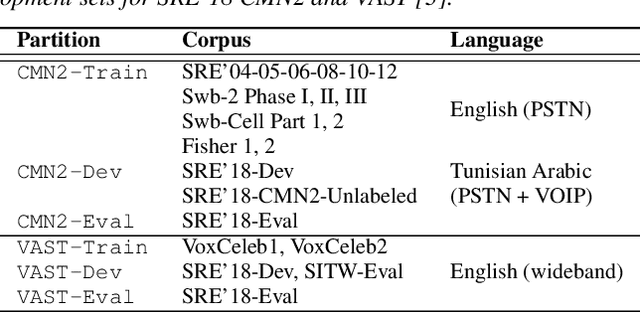
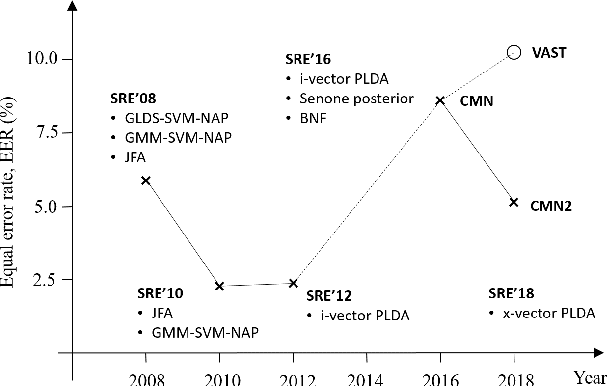
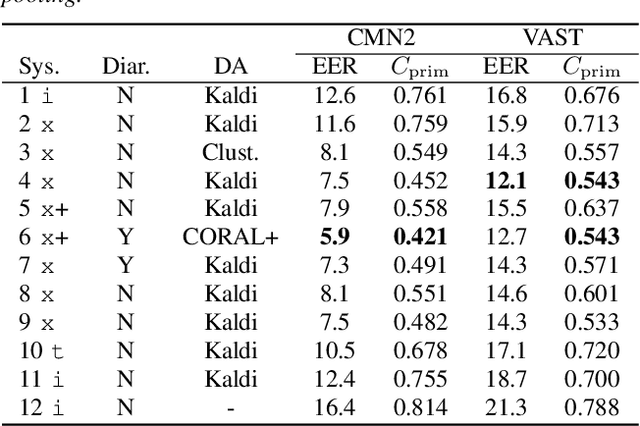
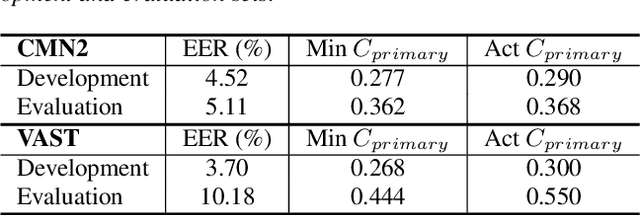
Abstract:The I4U consortium was established to facilitate a joint entry to NIST speaker recognition evaluations (SRE). The latest edition of such joint submission was in SRE 2018, in which the I4U submission was among the best-performing systems. SRE'18 also marks the 10-year anniversary of I4U consortium into NIST SRE series of evaluation. The primary objective of the current paper is to summarize the results and lessons learned based on the twelve sub-systems and their fusion submitted to SRE'18. It is also our intention to present a shared view on the advancements, progresses, and major paradigm shifts that we have witnessed as an SRE participant in the past decade from SRE'08 to SRE'18. In this regard, we have seen, among others, a paradigm shift from supervector representation to deep speaker embedding, and a switch of research challenge from channel compensation to domain adaptation.
I-vector Transformation Using Conditional Generative Adversarial Networks for Short Utterance Speaker Verification
Apr 01, 2018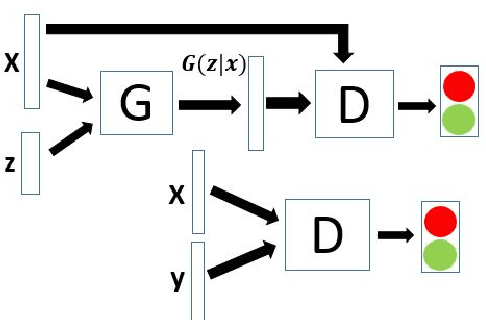
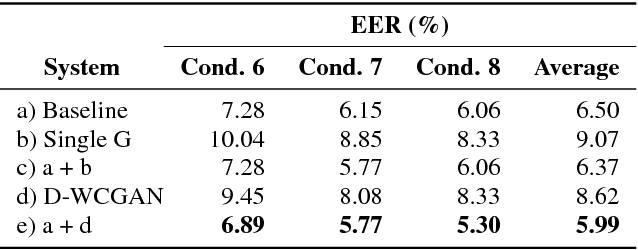
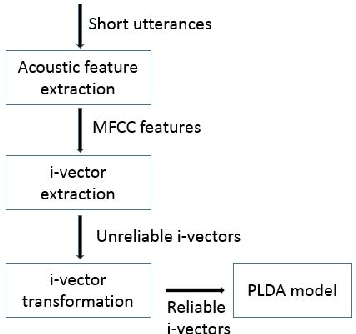
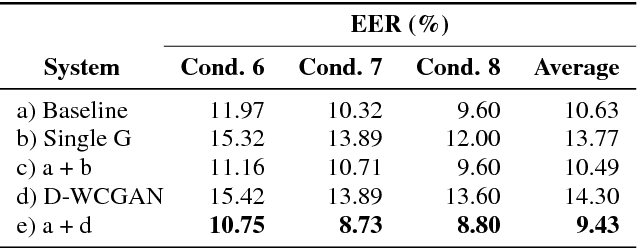
Abstract:I-vector based text-independent speaker verification (SV) systems often have poor performance with short utterances, as the biased phonetic distribution in a short utterance makes the extracted i-vector unreliable. This paper proposes an i-vector compensation method using a generative adversarial network (GAN), where its generator network is trained to generate a compensated i-vector from a short-utterance i-vector and its discriminator network is trained to determine whether an i-vector is generated by the generator or the one extracted from a long utterance. Additionally, we assign two other learning tasks to the GAN to stabilize its training and to make the generated ivector more speaker-specific. Speaker verification experiments on the NIST SRE 2008 "10sec-10sec" condition show that our method reduced the equal error rate by 11.3% from the conventional i-vector and PLDA system.
 Add to Chrome
Add to Chrome Add to Firefox
Add to Firefox Add to Edge
Add to Edge